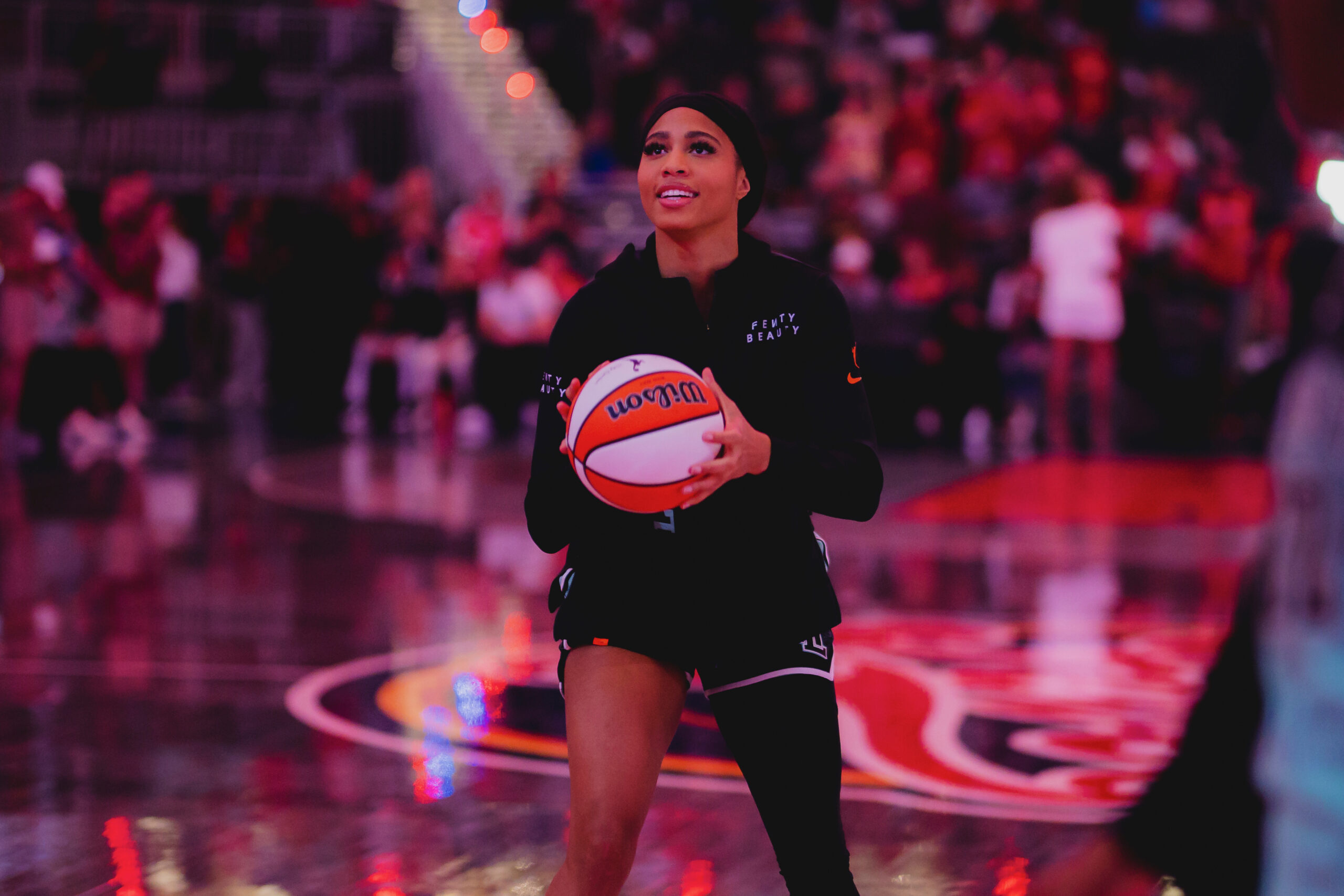Isabelle “Izzy” Harrison isn’t just another forward for the New York Liberty. She’s a force of nature. After three grueling years managing a persistent knee issue, a brace became her constant companion on the court and in training. But this season, she’s stronger, braver, and back at full throttle. Her journey mirrors a larger moment. Black women in sports have been rewriting history. In the past year alone, millennials like Angel Reese, Coco Gauff, and Olympian Simone Biles have seized headlines, titles, and cultural sway. Reese commanded the 2024 NCAA spotlight, Gauff clinched her second Grand Slam at the 2025 French Open, becoming the first Black American since Serena to do so and Biles continues to break barriers beyond the gym.
A Standing Ovation for Coco Gauff
That energy pulsed through Madison Square Garden early this month, when Coco Gauff visited the Liberty following her French Open triumph.
“She came in and did her spiel in the locker room and she said, ‘I’ve never felt like really welcomed like that outside of tennis,’ and that blew my mind,” Harrison said to 21Ninety.
She was shocked that Gauff, with all of her accolades at only 21, felt the most welcomed outside of her sport, on a basketball court.
“So I think that just goes to say…We support each other,” Harrison said.
Black Sisterhood in Sports
When asked about the power of camaraderie among Black women athletes, Harrison didn’t hesitate.
“I’m a big girls girl… going out and supporting one another … it builds the league, it builds players, it builds your brand. It also breaks down stigmas against women’s sports.”
She’s seen the flip side, too.
“I’ve seen a lot of distasteful things. I actually have to go out and defend on my own,” she explained.
A’ja Wilson, for example, recently launched her own shoe with Nike, making her the 14th player in the WNBA’s 28-year history to receive a signature shoe. Harrison explains that she loves the shoe, however, she has seen loads of criticism online about it.
“I’m gonna be the person to support her and show her that we love what you’re doing for the league. You’re marketable, and you’re still very much the G.O.A.T,” she said. “Whenever we can build each other up, have that camaraderie, we all go up. It’s not just one person.”
Facing the Hate
With attention comes criticism. Harrison notes that as women’s sports gain traction, many more people are watching and not everyone is going to be supportive.
“We just got into a weird space that people are way too comfortable with disrespecting people in general, especially online,” she explained. “People feel like because you make a certain amount or you have a title on your back, you’re supposed to be immune to it, which is like crazy because I go home and sleep and do my normal life just like everybody else.”
Often, WNBA players get compared to the NBA players, including the amount of criticism they receive. Harrison warns, however, to not bring that energy onto the women’s side.
“I think because the NBA has gone through much harassment, they almost expect us to do it, but we’ve never supported that,” she shared. “I think the guys are just like, ‘Whatever, I’m getting paid,’ and I’m sure it affects them too, but the W’s never been about we’re gonna let that slide.”
Embracing Change with the Liberty
For Harrison, joining the New York Liberty after leaving the Chicago Sky was a cultural shift. After years of watching male athletes get the lion’s share of attention, endorsement deals, and fan devotion, Harrison sees her presence in Brooklyn as an opportunity to disrupt that status quo. The Liberty are not only a basketball team, they’re a movement. From packed arenas to celebrity sightings courtside, Harrison is living what so many women athletes have long fought for: visibility, credibility, and community. That belonging that she feels encapsulates her on and off the court.
“The fans that we have are just so passionate even when they see you in the street,” she explained. “They’re just yelling ‘Go Liberty, Go Liberty!’ The city loves this team and you feel that you feel it everywhere you go.”
Harrison is shaping her own legacy with the NY Liberty and is challenging the status quo while doing so. She is more than an athlete. She’s a sister, activist, brand, and protector. As she shines with the Liberty, she’s leading the charge to ensure Black women in sports get the respect, solidarity, and equity they deserve.
